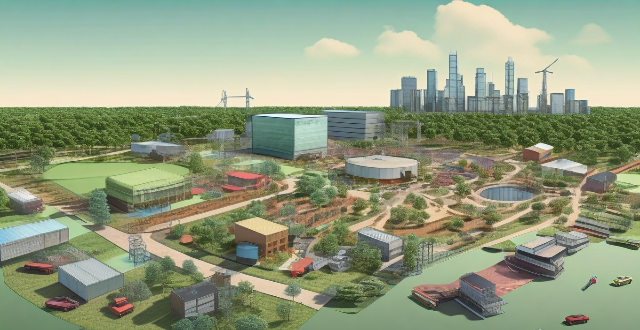Climate action initiatives are essential for mitigating the impacts of climate change, but they come with potential drawbacks and challenges. These can range from economic to social and political implications. Economic implications include job displacement in traditional fossil fuel industries, the cost of implementing renewable energy infrastructure, and economic inequality. Social and cultural implications involve changes in lifestyle and consumption patterns, as well as equity in access to clean energy solutions. Political and policy challenges include legislative hurdles, international cooperation, public perception, and misinformation. Environmental trade-offs involve impact on other ecosystems and sustainability of solutions. Addressing these challenges through comprehensive planning, stakeholder engagement, and continuous improvement is crucial for a just and effective transition to a low-carbon future.

Potential Drawbacks or Challenges Associated with Climate Action Initiatives
Climate action initiatives, while essential for mitigating the impacts of climate change, often come with a set of potential drawbacks and challenges. These can range from economic to social and political implications. Let's delve into some of these challenges:
Economic Implications
*Job Displacement*
- Transitioning Industries: Shifting towards renewable energy sources may lead to job losses in traditional fossil fuel industries.
- New Opportunities: While new jobs are created in green industries, they might require different skill sets, leading to a skills mismatch.
*Cost of Implementation*
- Upfront Costs: The initial investment needed for renewable energy infrastructure and technology can be high.
- Long-term Savings: These costs are often offset by long-term savings on healthcare and environmental restoration.
*Economic Inequality*
- Unequal Distribution: The benefits and burdens of climate action are not always distributed evenly among different socioeconomic groups.
- Just Transition: Ensuring a fair transition for all workers affected by climate policies is crucial.
Social and Cultural Implications
*Change in Lifestyle*
- Consumption Patterns: Reducing carbon footprints might require significant changes in consumption patterns and lifestyle.
- Public Acceptance: Not all individuals may be willing or able to adapt to these changes immediately.
*Energy Access*
- Renewable Energy Gap: Remote areas may struggle with access to renewable energy sources compared to urban centers.
- Equity in Access: Ensuring equal access to clean energy solutions is a key challenge.
Political and Policy Challenges
*Policy Implementation*
- Legislative Hurdles: Passing and implementing climate-related policies can face opposition from various interest groups.
- International Cooperation: Coordinated global action is necessary but challenging due to differing national interests.
*Public Perception and Misinformation*
- Skepticism: Misinformation about climate science can lead to public skepticism and resistance to climate actions.
- Education and Awareness: Addressing misinformation and promoting climate literacy is essential for successful initiatives.
Environmental Trade-offs
*Impact on Other Ecosystems*
- Biodiversity Concerns: Some renewable projects, like large hydropower dams, can negatively impact local ecosystems and biodiversity.
- Resource Extraction: Mining for materials needed for renewable technologies (like lithium for batteries) can have environmental consequences.
*Sustainability of Solutions*
- Longevity of Technologies: Ensuring that the solutions implemented are sustainable over the long term, both technologically and environmentally.
- Waste Management: Dealing with the waste generated from old renewable energy equipment, like solar panels and wind turbines.
In conclusion, while pursuing climate action initiatives, it's imperative to address these challenges through comprehensive planning, stakeholder engagement, and continuous improvement to ensure a just and effective transition to a low-carbon future.